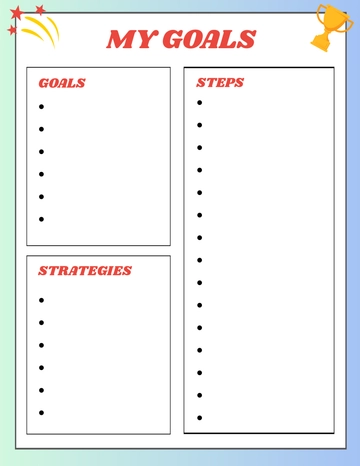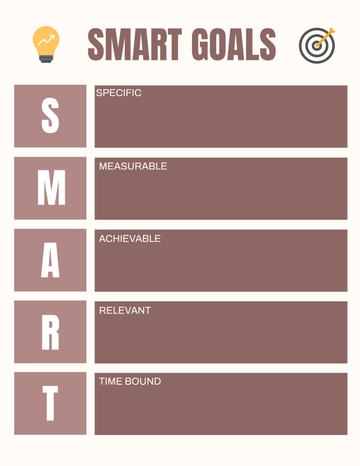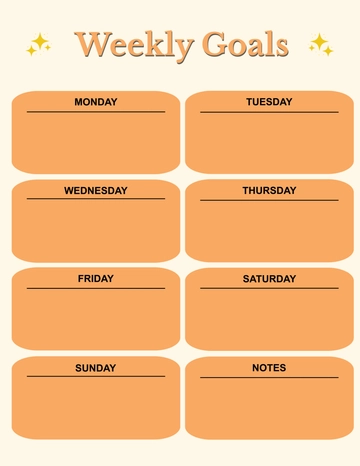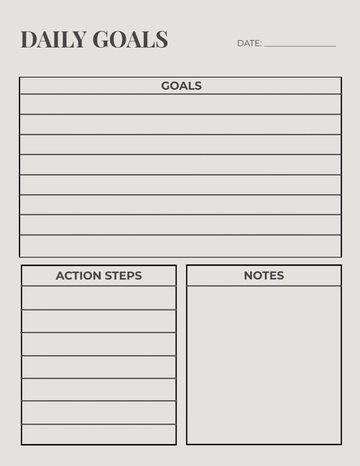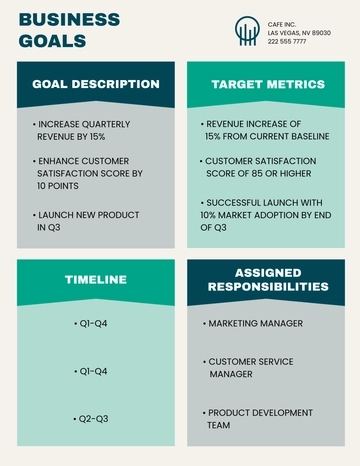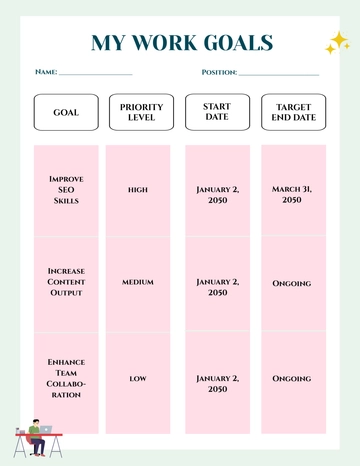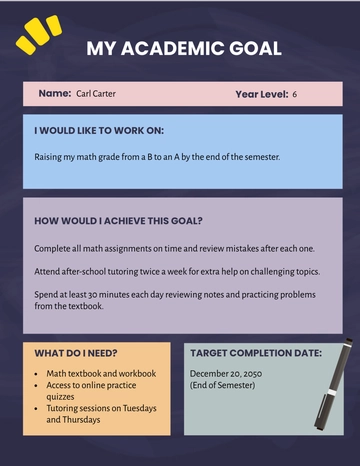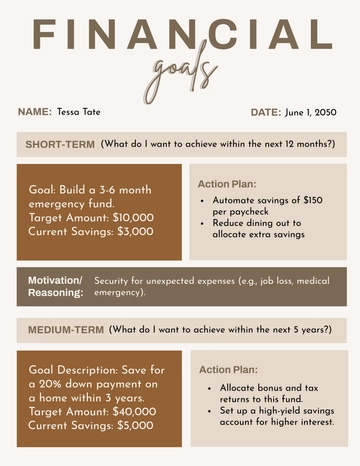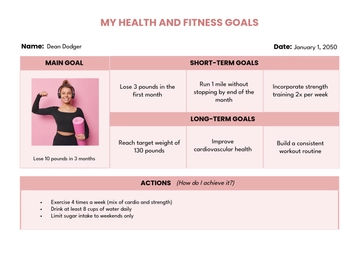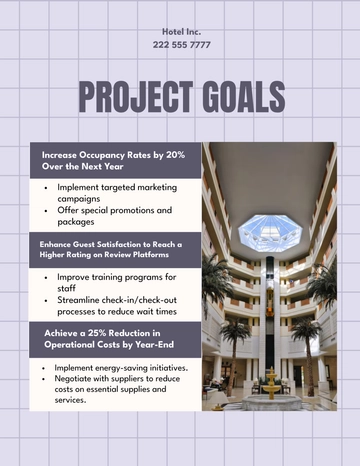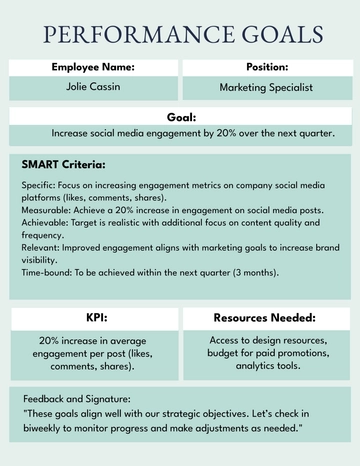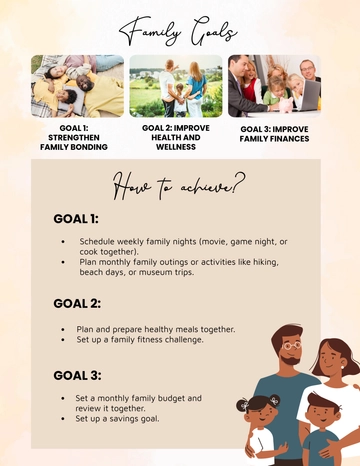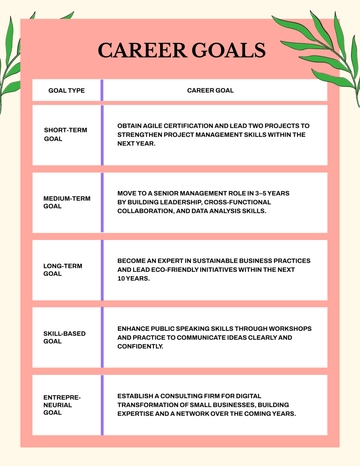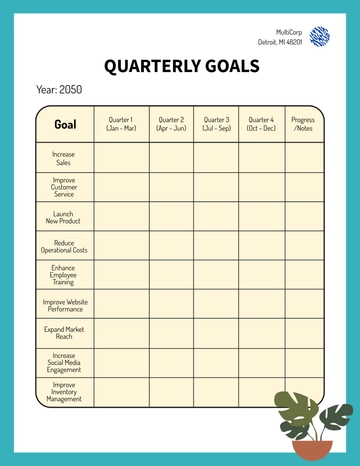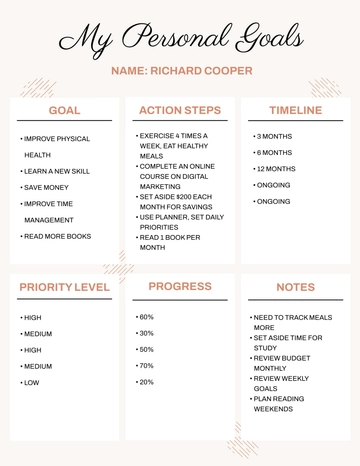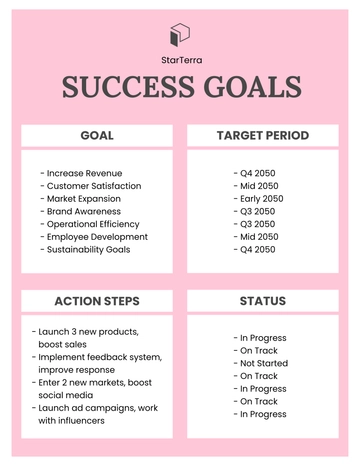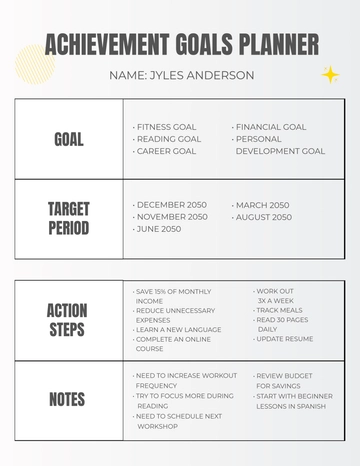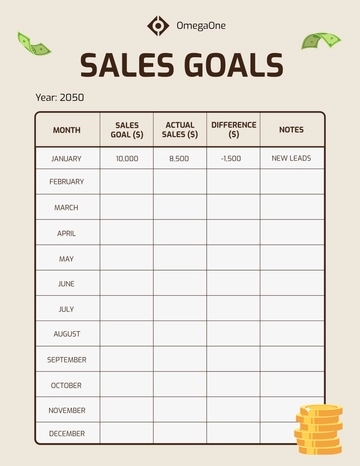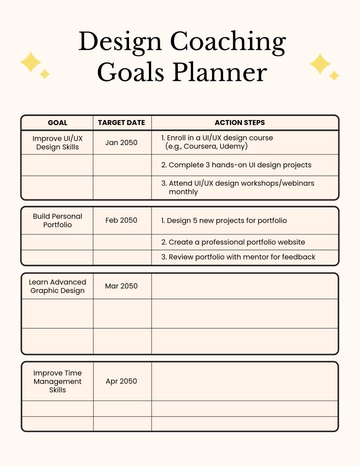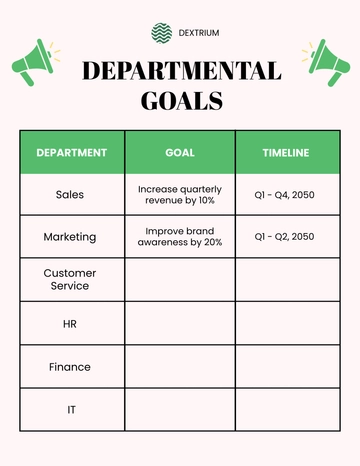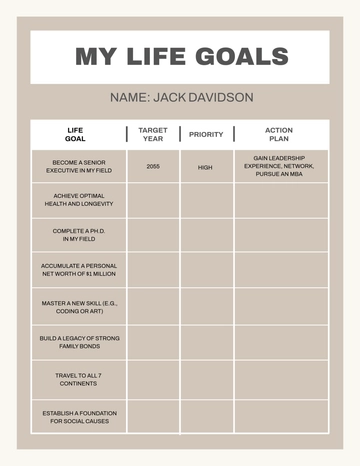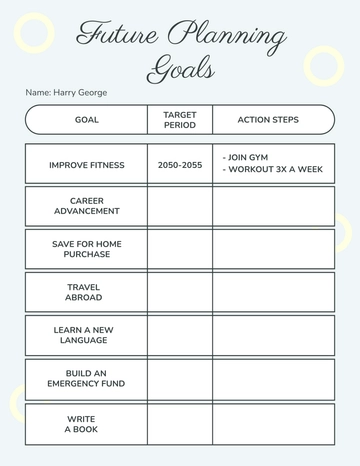Free SMART Coaching Goals

Prepared by: [YOUR NAME]
SMART coaching goals provide a structured approach to setting clear, measurable, and achievable objectives that align with broader business goals. By applying the SMART criteria, these goals become actionable, focused, and time-bound, ensuring consistent progress and successful outcomes.
SMART Criteria
SMART | Description | Example |
|---|---|---|
Specific | Goals should be clear and specific, answering the questions Who, What, Where, When, and Why. | Increase client engagement by 50% in six months by holding weekly training sessions. |
Measurable | Track the progress and outcomes. Measurable goals enable evaluation of success. | Measure client progress through monthly performance reviews. |
Achievable | Goals should be realistic and attainable, not extreme. | Train a team of 5 new coaches within three months. |
Relevant | Align goals with broader business objectives, ensuring that they matter. | Enhance customer satisfaction levels to improve the company's market reputation. |
Time-bound | Goals should have a clear timeline with a start and end date. | Complete all certifications required for coaching within one year. |
Action Plan
To effectively achieve the SMART coaching goals, the following action plan will be implemented:
Conduct Initial Assessment:
Identify current client engagement levels and satisfaction metrics.
Review existing coaching certifications and team readiness.
Set Up Weekly Training Sessions:
Schedule and design training sessions aimed at boosting client engagement.
Assign team members specific roles in delivering these sessions.
Monthly Performance Reviews:
Develop a framework for tracking client progress.
Conduct monthly reviews to measure improvements and adjust strategies as necessary.
Coach Training Program:
Design a curriculum to train five new coaches within the next three months.
Assign mentors to each new coach for guided learning.
Customer Satisfaction Initiatives:
Implement customer feedback mechanisms to gather data on satisfaction.
Use insights to refine coaching practices and enhance overall customer experience.
Certification Completion:
Create a timeline for completing the required certifications.
Monitor progress and provide resources for timely completion.
Accountability
To ensure the successful implementation of the SMART coaching goals, the following accountability measures will be established:
Weekly Check-ins:
Regular meetings to discuss progress on training sessions and client engagement.
Address any challenges and adjust the plan as needed.
Monthly Performance Reports:
Document client progress and compare against predefined metrics.
Share findings with the team and management to ensure transparency.
Coach Training Milestones:
Track the development of new coaches against set milestones.
Provide feedback and support to ensure they meet their goals within the timeframe.
Certification Monitoring:
Regular updates on the progress of certification completion.
Address any delays and ensure resources are available to meet deadlines.
Customer Feedback Integration:
Analyze feedback from customers and incorporate it into coaching practices.
Regularly review customer satisfaction levels to ensure continuous improvement.
Notes
Flexibility: While the goals are specific and time-bound, there should be room for flexibility to adjust plans as circumstances change.
Communication: Open communication within the team is crucial for addressing challenges and making necessary adjustments.
Continuous Improvement: Use the outcomes and feedback as a basis for continuous improvement of coaching practices.
Resource Allocation: Ensure that adequate resources are available for the successful completion of all goals, including time, tools, and support systems.
- 100% Customizable, free editor
- Access 1 Million+ Templates, photo’s & graphics
- Download or share as a template
- Click and replace photos, graphics, text, backgrounds
- Resize, crop, AI write & more
- Access advanced editor
Elevate your coaching sessions with the SMART Coaching Goals Template, crafted to streamline your goal-setting process. This template offers a structured approach to setting and tracking goals. Fully customizable and editable in our Ai Editor Tool, it’s available on Template.net to support your coaching strategies and track progress with precision.
